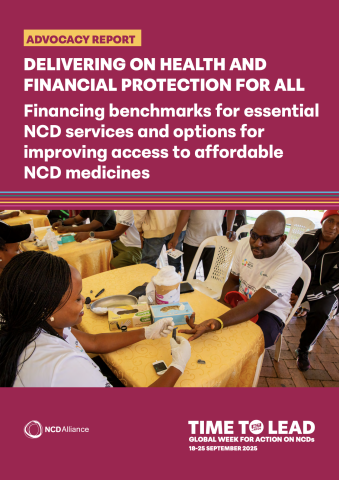
Noncommunicable diseases (NCDs), including mental health and neurological conditions, are the leading cause of death and disability worldwide. They are a rapidly growing public health crisis, especially in low- and middle-income countries (LMICs) where health systems are unprepared for this increasing disease burden and resources are tightly stretched.
This report demonstrates the size of the current funding gap in essential NCD care. To achieve universal coverage and provide financial protection for a package of 13 essential NCD primary healthcare interventions, countries should aim to spend 1.1% to 1.7% of gross national income (GNI). Based on the limited available data on allocation of health budgets on NCDS, it finds that currently, most countries invest just 0.26% to 0.46% of GNI on the same package. This report also identifies that variations in pricing across and within countries is having a significant effect on the value gained from these health budgets allocations.
From a four-country case study, if all countries were able to obtain these medicines at the minimum prices observed, the benchmark estimates for necessary spending would be 20-50% lower at 0.91% to 0.89% of GNI. Finally, the report highlights policies identified through a literature review that can effectively improve the affordability and availability of NCD medicines, bringing countries closer to achieving universal health coverage for their populations.



